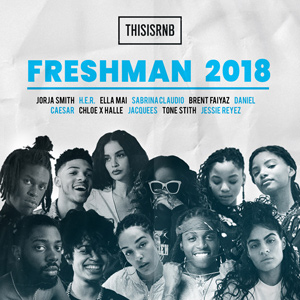This past week, singers from various genres and backgrounds gathered to learn more about caring for, resting and protecting their instrument at a vocal health clinic presented by MusiCares and the Recording Academy’s Washington D.C. Chapter.
The clinic featured a conversation on vocal health moderated by singer/songwriter Tracy Hamlin with Associate Professor of Otolaryngology Dr. Nazaneen Grant, tenor vocalist Issachah Savage, and GRAMMY-winning gospel/R&B artists Lalah Hathaway and Anthony Hamilton. The all-star panel delivered a discussion that was anything but clinical, igniting the room into laughter, awe and epiphany as they shared their vocal habits, techniques, secrets, and insights.
For all you vocalists out there, here are 10 amazing insights, tips and tricks directly from the experts’ lips.
1. Find What Works For You
Perhaps the most important takeaway from the clinic was that every vocalist needs to find out what works best for them, regardless of the wide variety of techniques out there. As Hamlin pointed out, “What works for one singer may be completely different for another.” Savage added, “I cannot stress it enough, it is so super-duper important to really find out what works for you, and the only way you can do that is to know your instrument, and the only way to know your instrument, of course, is to spend a lot of time with it. Practice, practice, practice.”
2. What To Eat On Day Of Show
Believe it or not, Hathaway confessed to not eating anything on the day of a concert, saying, “It makes me super sleepy and my reaction time is slow.” Hamilton admitted he doesn’t do dairy at all anymore, but he needs to eat something before taking the stage, saying, “I don’t like to sing on an empty stomach, it just feels hollow.” Savage added that he drops half a teaspoon of salt into a glass of water the morning of the show. All three singers revealed they’ll have a cup of coffee from time to time, but alcohol before a show is a no-no.
3. The Truth About Hydration
Hydration is always a good idea, especially for the voice. Staying hydrated allows the vocal folds to stay limber and maintains the protective mucosal lining that coats the vocal folds and protects them from the natural friction that occurs during vocalization. “Drinking water is good to hydrate your whole body, but when you swallow, there’s this thing called the epiglottis that flips over and makes it so the water doesn’t go in your voice box — that’s what happens when you choke,” said Grant. “So [the water is] not hitting the vocal chords directly. Even when we gargle, it doesn’t hit the vocal chords directly. Steam is actually what makes [the moisture] touch [the vocal chords].” She added that avoiding dehydrating substances — such as caffeine, decongestants and allergy medicines — is also helpful.
Read the rest at Grammy.com.
(Top photo by Paul Morigi / Getty Images)




